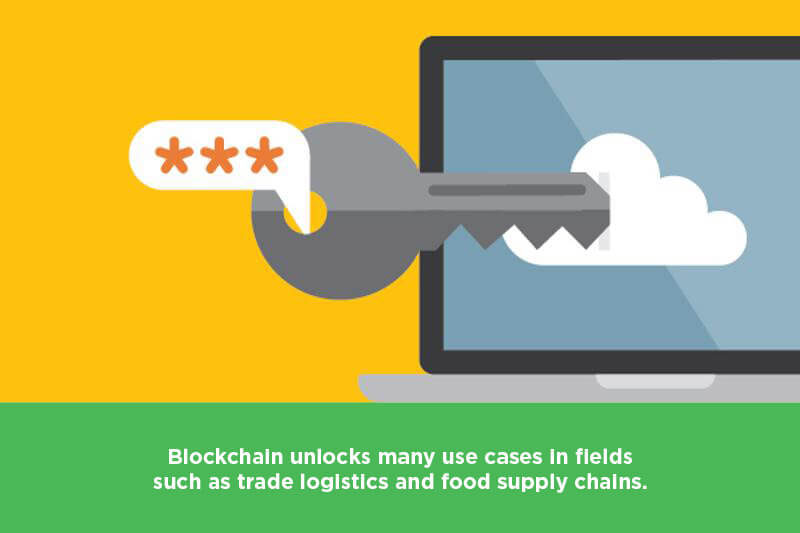Blockchain was one of the most widely covered enterprise technologies of 2017. It is best known as the technical architecture behind the popular cryptocurrency Bitcoin, which raised eyebrows in the final months of the year thanks to its enormous fluctuations in value; at one point, a single Bitcoin was trading at more than $18,000.
Blockchain basics
There’s more to blockchain than digital currencies, though. It is essentially a computerized distributed ledger, meaning:
- Ledger management is decentralized. Each node has a copy, along with the ability to validate and confirm transactions independently.
- Permissionless (public) blockchains are the most prominent deployments, but there are also permissioned (private) ones that verify the identities of nodes before they join.
- Under either model, a blockchain is immutable (i.e., unalterable). Blocks are permanently added to the chain after its entities reach consensus. For example, Bitcoin consensus is formed by evaluating a proof-of-work of a mathematical problem, but other blockchains use different procedures.
A specific blockchain might handle contracts, data storage, bank/credit union lending or many other functions. In all cases, blockchain can deliver major benefits in transparency, security and directness. All ledger transactions are final and have established provenance showing where they came from. The same version of the truth is contained in each copy of the distributed ledger.
What blockchain can do for your supply chain management processes
Supply chain management (SCM) processes could be further transformed by blockchain, with possibilities such as:
Electronic Data Interchange (EDI)
In a supply chain, a lot of key business documents get exchanged between business partners. For example, purchase orders, advanced shipment notices, packing slips, etc., get exchanged between a company and its suppliers, carriers, and 3PLs.
A private blockchain can be provisioned with all the key supply chain stakeholders as participating nodes. The Blockchain ledger can serve as a digitally signed, unalterable record of all transactions and documents exchanged between the supply chain partners. Business functions pertaining to these documents and transactions can be automated by a smart contract deployed on the blockchain network. Blockchain reduces miscommunications between the supply chain participants, enhances trust and reduces duplication of document/transaction information.
 Blockchain unlocks many use cases in fields such as trade logistics and food supply chains.
Blockchain unlocks many use cases in fields such as trade logistics and food supply chains.Trade logistics
Permissioned blockchains can complement trade logistics. Digitization of end-to-end shipment tracking and transaction management, via blockchain-based solutions, can simplify logistical coordination across networks of shippers, freight forwarders, ocean carriers, and ports/customs authorities. Such precision and transparency helps reduce fraud, clerical mistakes and overall time spent in transit.
Food supply chain
Similar to trade logistics, food supply chains are ripe for reinvention via blockchain. Shipping histories are easier to track, taking only seconds to piece together, instead of hours or days. With increased tracking agility, food-borne illnesses can be detected more quickly. There is also the added benefit of improved coordination between farmers, brokers, distributors, processors, retailers, regulators, and consumers.
Supply chain of precious items
The tracking of precious items (ex. diamonds) is more straightforward than ever with blockchain breakthroughs. Digital thumbprints of each item, based on numerous metadata points, can be stored on a common, readily accessible, distributed ledger to provide a single version of the truth during lookup and verification of value and authenticity.
Get a head start on blockchain innovations with help from Inspirage
When it comes to blockchain, Inspirage is prepared to provide advisory, testing, prototyping and lab services for clients, as well as fine-tuned industry-specific offerings. Inspirage already offers a broad portfolio of integrated SCM solutions, suited to a wide range of requirements across many verticals. Learn more by visiting our main SCM page or our Resource Center.
